Preparing a child for their first period (and 40 or so more years of the monthly experience) is an important task. One that requires honesty, empathy, and support. But this woman may have forgotten all three.
Recently, an anonymous Reddit user submitted a story to the ‘Am I the [Jerk]?‘ community, asking if her response to her stepdaughter’s first period (or rather, the way the teen handled it) was appropriate.
Apparently, the 16-year-old was too embarrassed to tell her what she was going through, so she simply took the woman’s sanitary products without asking. So the woman scolded her and took everything back.
Continue scrolling to read how everything went down and the things Iris Gorfinkel, M.D. told Bored Panda we all can do to better navigate such situations.
This woman realized that her stepdaughter had taken her sanitary pads without asking

Image credits: Sora Shimazaki (not the actual photo)
So she stormed into the teen’s room and confronted her about it



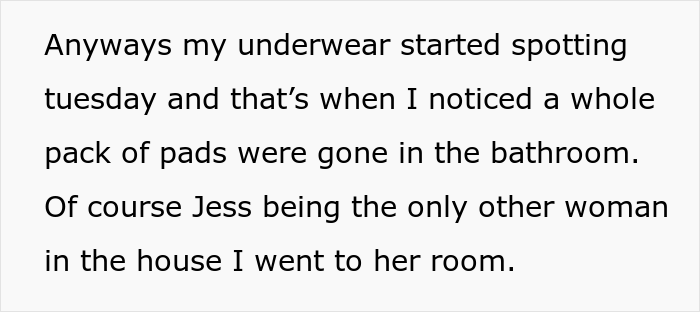

Image credits: Ketut Subiyanto (not the actual photo)
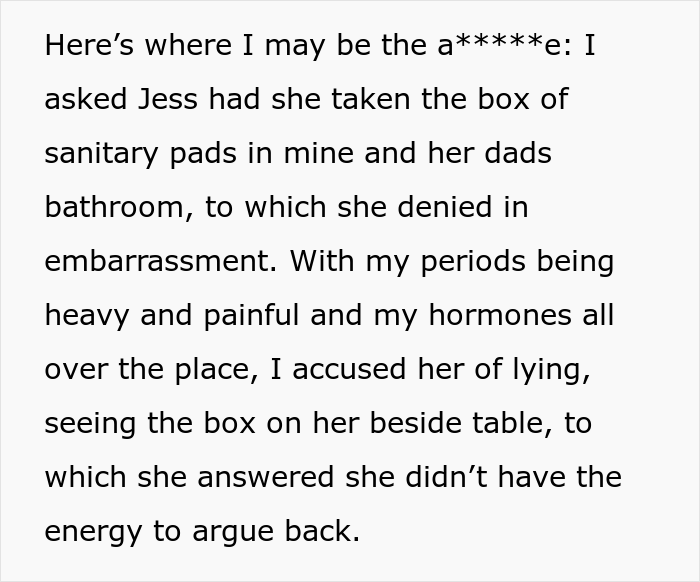
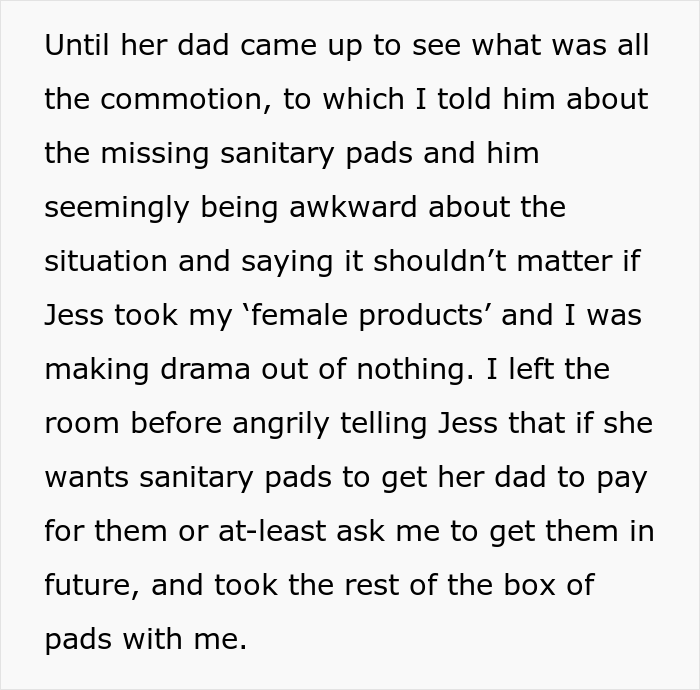
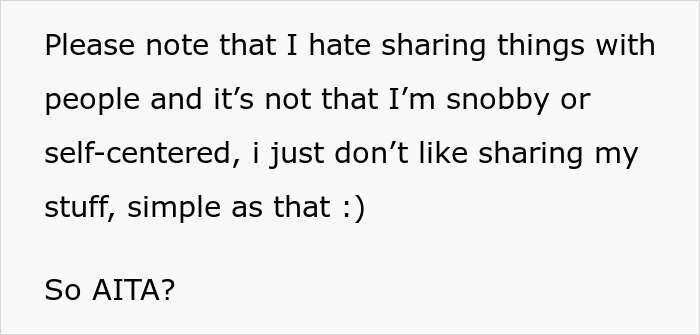
Image credits: throwaway0001Xoxo
First, let’s understand what happens during menstruation.
General practitioner, medical researcher, and founder of PrimeHealth Clinical Research, Iris Gorfinkel, M.D., pointed out that a woman is born with 1 million eggs and by the time puberty comes around, that’s down to about one-third, or 300,000 eggs. “By the time we’re thirty, we only got about 100,000 eggs, and by the time we’re 40, we’re down to 18,000. So the number keeps shrinking over time,” the doctor told Bored Panda.
“Over a lifetime, about 400 of those eggs are going to ovulate. So think about that 400 of what starts out as a million. That’s why every single one of us is a miracle. It’s pretty incredible that you and I even exist when you look at the odds of that happening.”
“We go through different stages of sexual maturity and right from the get-go, from the time we’re eight or nine, our ovaries begin to enlarge and hormones are starting to be produced,” Gorfinkel said. “Breast buds come in and then pubic hair starts growing. At first, it’s soft, and then not that much. Usually when those changes have all happened, then you know ovulation and menstruation will be next.”
“One of those 300,000 eggs finally matures and if it’s not fertilized in the tube with a sperm, it will then drop by itself into the uterus. The lining of the uterus, which has thickened to prepare for fertilization, sheds some two weeks later after the ovulation.”
“To us women, it seems like we’re losing a lot of blood, but in fact, it’s a lousy three tablespoons,” Gorfinkel added. “There are women who bleed a lot more than that but, generally speaking, if the periods are really heavy, then it’s a reason to see a doctor to try to understand why.”
Interestingly, the doctor said researchers have also measured cramping that occurs during women’s periods, and to some, they can actually be as strong as contractions they would experience when having a baby.
Gorfinkel is certain that it’s extremely important to talk to kids about menstruation. “Teach them what to expect and celebrate together; it’s normal, it’s healthy,” she said. “When the first period comes, that’s a reason to go out, to grab lunch. It not only sets the stage for body acceptance, but also for questions about what exactly is happening.”
As helpful as this can be, the doctor said you should try not to cram everything into one talk, but “expand it into a series of conversations, repeating what is exactly going on with menstruation, showing diagrams, and saying the actual words like uterus and vagina — these are not bad words. They’re healthy… Just be honest and open about it.”
Other experts agree that discussing periods shouldn’t happen only at a particular age. Ideally, the conversation should start early and slowly build on the child’s understanding. Both girls and boys need reliable information about periods.
For example, if your little one sees a tampon and asks what are you going to use it for, you could say something like, “Women bleed a little from their vagina every month. It’s called a period. It isn’t because they’re hurt. It’s how the body gets ready for a baby. The tampon catches the blood so it doesn’t go on the underwear.”
Over the years, you can give your child more information as he or she is ready.
If your child doesn’t ask questions about periods, you can bring it up yourself. By the time they’re 6 or 7 years old, most kids can understand the basics of periods. Look for a natural moment to talk about it, such as:
Ask if your child knows about periods. Then, you can share various information in an easily understandable manner, such as: as a girl develops into a woman, her body changes so she can have a baby when she grows up. Part of that is getting a place ready for the baby to grow inside the mom. The place a baby grows is called the uterus. Every month, the uterus wall gets ready for a baby. If there is no baby, the uterus wall comes off and bleeds a little. The blood comes out of a woman’s vagina. The body makes a new wall every month, just in case there is a baby.
Answer any questions simply and directly.
These talks are as important as ever. And there’s a study that vividly illustrates this point. We’ve already mentioned it in recent Bored Panda articles, but in case you missed it; in 2019, YouGov asked British men to label a diagram of female genitalia. The results were abysmal. Well over half of the men surveyed could not label the vagina or labia, and the majority could not point out where it is that urine comes out.
However, the same study found that plenty of women have problems navigating their bodies, too. For example, 43% of them could not label the labia.
The only part of the female genitalia which the majority of both genders got right was the clitoris, identified correctly by two-thirds of men and women (71% of women, 69% of men).
People unanimously said the woman needs to seriously rethink her reaction
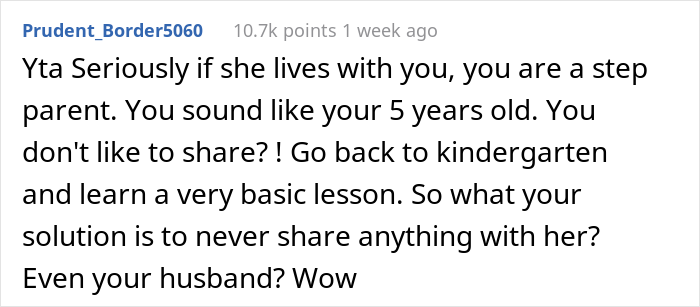


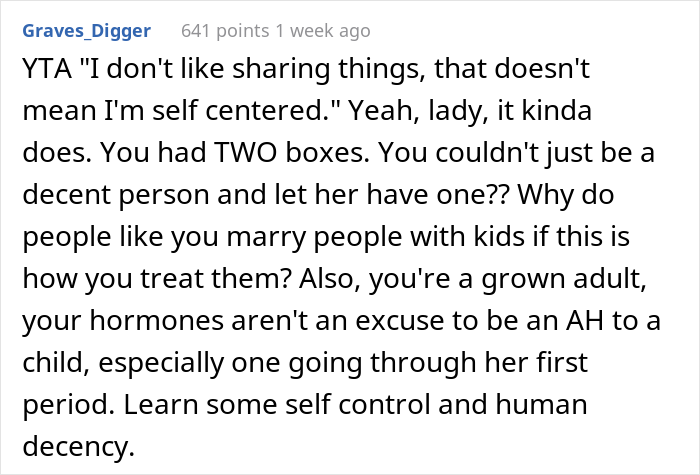


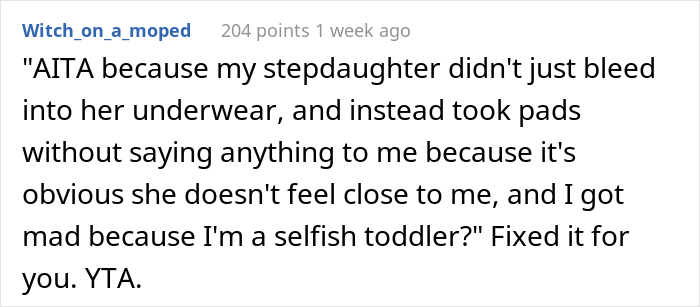



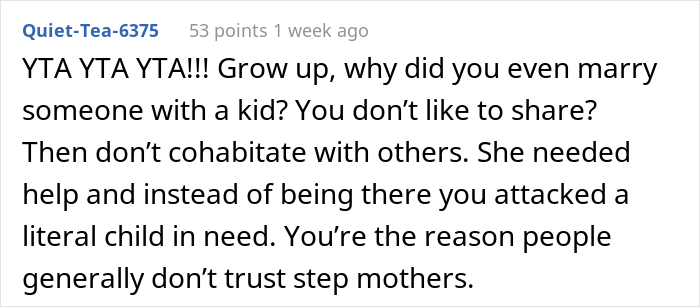


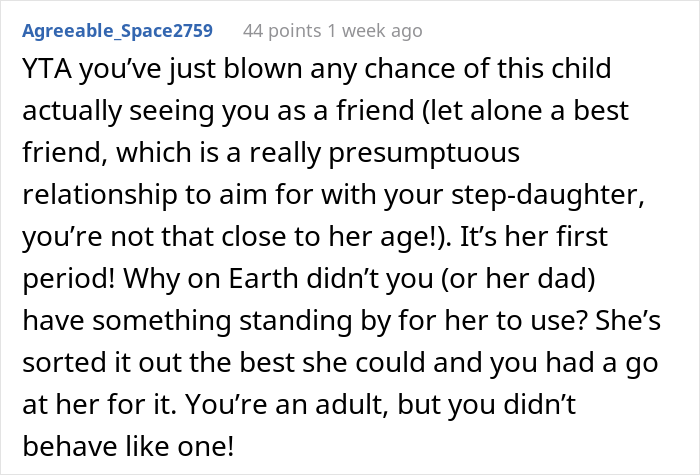
 Follow Us
Follow Us




